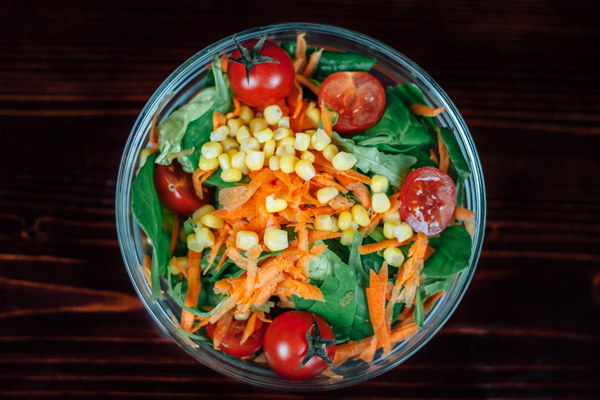Nurturing Babys Stomach and Spleen A Comprehensive Guide to Complementary Feeding at Eleven Months
As a parent, you may often find yourself pondering over the best ways to nourish your little one. By the time your baby reaches eleven months, their digestive system is developing rapidly, and it is crucial to introduce them to the right kind of complementary foods that can help build a strong stomach and spleen. In this article, we will explore the importance of a balanced diet, suitable food choices, and feeding techniques that can promote optimal growth and health for your baby.
The stomach and spleen play a vital role in the body's digestive process, absorbing nutrients and providing energy. As your baby transitions from breast milk or formula to solid foods, it is essential to introduce the right kind of nutrients that support their digestive system. Here are some key points to consider when it comes to complementary feeding at eleven months:
1. Understanding Your Baby's Nutritional Needs
At eleven months, your baby requires a variety of nutrients, including proteins, carbohydrates, vitamins, and minerals. A balanced diet can help meet these needs and promote healthy growth. Ensure that your baby's diet includes the following food groups:
- Fruits and vegetables: These are rich in essential vitamins, minerals, and fiber, which aid digestion and support the immune system.
- Grains: Incorporate whole grains like brown rice, oatmeal, and whole wheat bread to provide energy and fiber.
- Proteins: Introduce protein-rich foods such as lean meats, poultry, fish, eggs, and legumes to support muscle development and repair.
- Dairy: Offer dairy products like yogurt and cheese to provide calcium and vitamin D for strong bones.
2. Suitable Food Choices
When introducing solid foods, it is essential to consider your baby's readiness. Here are some suitable food choices for an eleven-month-old:
- Soft fruits: Mashed bananas, ripe pears, and peaches are excellent sources of vitamins and fiber.
- Cooked vegetables: Mashed carrots, sweet potatoes, and butternut squash are rich in vitamins A and C.

- Grains: Soft cooked rice, oatmeal, and whole wheat pasta can be mixed with fruits or vegetables to create a nutritious meal.
- Proteins: Finely chopped or pureed chicken, turkey, and beef can be introduced as a source of protein.
- Dairy: Soft yogurt and cheese can be offered in small quantities, ensuring that your baby is not allergic.
3. Feeding Techniques
Proper feeding techniques can help your baby develop healthy eating habits and improve digestion. Here are some tips:
- Offer small, frequent meals: Feeding your baby small, frequent meals helps their stomach and spleen process food more efficiently.
- Introduce new foods gradually: Allow your baby to get accustomed to new foods by introducing one new food at a time, observing for any allergic reactions.
- Encourage self-feeding: As your baby's fine motor skills develop, encourage them to feed themselves with their fingers, spoons, or baby-safe utensils. This will help them learn to chew and develop a healthy appetite.
- Create a comfortable feeding environment: Ensure that your baby is in a calm and comfortable environment during mealtime, as stress can affect digestion.
In conclusion, introducing complementary foods at eleven months can help build a strong stomach and spleen in your baby. By understanding their nutritional needs, selecting suitable food choices, and adopting proper feeding techniques, you can lay a solid foundation for their lifelong health. Remember, each baby is unique, so it is essential to observe their preferences and adjust the diet accordingly. Happy feeding!









